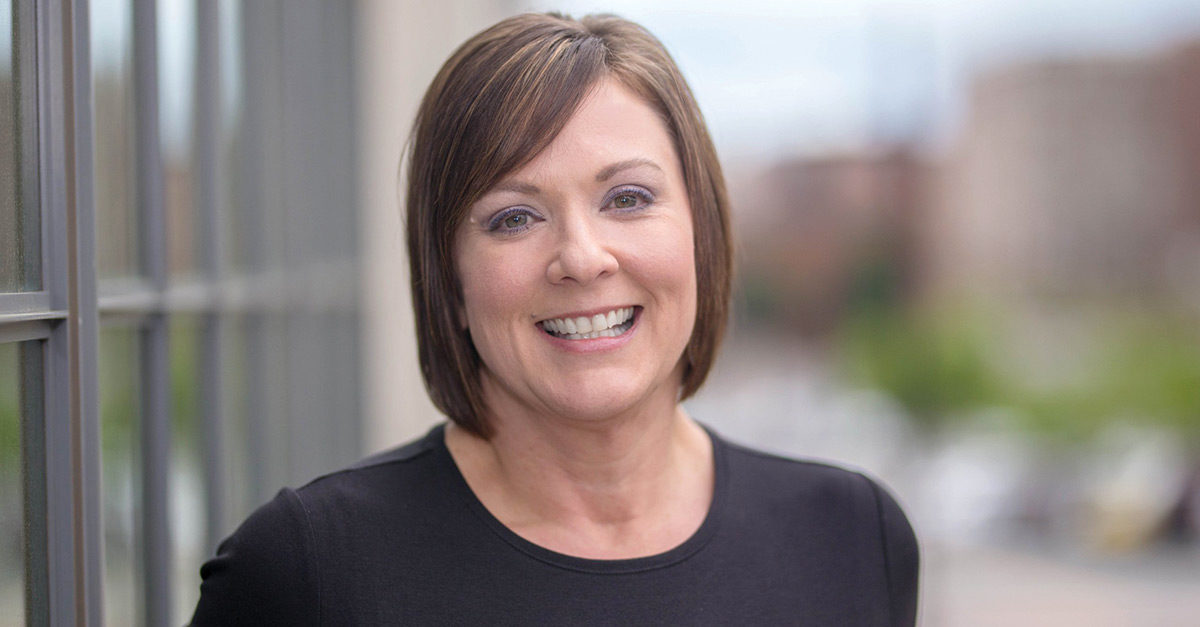Navigating the world of facilities and custodial management involves thinking ahead about potential opportunities for—and sometimes barriers to—success. This industry is full of both, but for women in particular, finding opportunities and breaking down the barriers can be particularly challenging.
About 25 percent of women never expect to move beyond an entry-level position in their line of work, and only 22 percent expect to reach a director-level position, according to a 2017 survey conducted by CareerBuilder. This data is just one example of how the road to success in the workplace is not always so clear for women.
Stephanie Poskin, director of facilities for support services and operations at Wake Forest University in North Carolina, is one woman who has broken down this barrier to leadership within the industry. This question and answer session with her discusses her success and her view on opportunities for women working as facilities service providers.
Do you think there are barriers to entry for women coming into the facilities field?
SP: I absolutely do, because it is so male-dominated, and that’s what the norm has been for years. Being an electrician was always a “man’s job.” Being in the facilities group was historically a “man’s job,” so I think that overcoming people’s unconscious bias is definitely something that needs to be done. How do [women accomplish] that when [they are] not already in the field?
Do you have thoughts about what young, upcoming female leaders can do to overcome that unconscious bias in the facility management industry?
SP: [Women] can be strong in their beliefs and not waffle on them no matter what. Their actions should show their ethics and prioritized values. [They should stay] true to themselves and not take no for an answer; it’s okay to push back.
That’s a strong and powerful reminder. What kind of support helps you to thrive in your leadership?
SP: I know that my boss doesn’t see me any differently than he sees my peers. If my peers have a great idea that’s very innovative and is communicated well, he will go with it, but he’ll also go with mine just the same. I don’t feel like I must necessarily prove myself to him any more than my peers do. He is extremely supportive of me and I’m very lucky that way.
Keeping yourself trained and sharpening your skillset is important. It’s important whether you’re a man or a woman, but I specifically think it’s important for a woman to make sure that she understands new and innovative ideas and tools. It’s not only for empowering your staff, but I think you need to empower yourself as well, and make sure that you’re not just staying in the status quo.
What would be possible in the field if there were more women? What’s the potential if more women were involved?
SP: This is an industry in which women definitely have not gravitated. I don’t think a whole lot of women strive to work in the facilities department. It’s a service industry, and it makes sense that there is diversity in it, yet that’s not what has happened over the years. But now I think that gap is closing. I think it’s time. When I look around at leadership conferences or anything facilities-related, I think there are more and more women coming to the table, and it’s very exciting to me.
Based on my observations over the last five years, I can already see there’s a change. I think that women have the ability to multitask incredibly. They’re able to embrace change and innovation, and I really think that women can be strong communicators.
In addition to the ISSA Hygieia Network, are you starting to see more infrastructure in supporting women in this field?
SP: I have seen some. Right down to my own university where we have a career-development program for women leaders. The program is not just for facilities, it’s for women in leadership as a whole.
Any time you can influence the politics by making sure that you have diversity practices across your department, I think it promotes equality. I think it promotes growth, and I think it gives you a sense of community, as well.
How can female leaders help to elevate other women in the industry?
SP: When I get an invite to a women’s leadership conference or anything that supports women in business, I don’t even flinch. If it looks like something I can benefit from, and others can benefit from me having that knowledge, I request to go.
Women are hard on themselves, but I think that we are particularly hard on each other. So, any time that I can learn to support the women around me, to be able to send the elevator down, so to speak, to give people a foot in the door to get into this industry, I’d like to be able to make sure I keep an open mind to be able to do that.
Do you think that comes from having to justify your own feelings and emotions in the workplace?
SP: Yes. Having a seat at the table means you need to be able to have the backbone to support your thoughts, your beliefs, and not step on others for theirs, but [rather,] try to help guide [others] to change culture.
As a woman, you feel like you’re constantly trying to position yourself. You have to make sure that you’re actually in the right meetings. You need to make sure that you have a voice. It’s not somebody’s job to grant it to you. You need to take it. You need to make sure that you are there—that you show up.
What’s a first step to identifying those opportunities and taking them?
SP: We need to invest in ourselves. Whether you’re a woman in a male-dominated world or not, it’s important to welcome everyone’s ideas. Ultimately, I think if we take every challenge and make it an opportunity to be successful or at least to communicate, to help one other person [to succeed], then I think we’re headed in the right direction.




